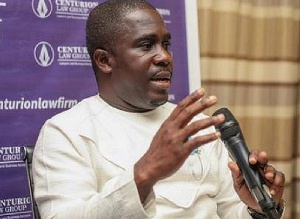adverts
The Institute for Energy Security (IES) has sounded an alarm over a potential power crisis, commonly referred to as ‘dumsor,’ urging the newly sworn-in Mahama administration to act swiftly to avert nationwide outages.
This follows revelations by Yapei Kusawgu MP John Abdulai Jinapor, who disclosed that Ghana’s fuel stock is critically low, with only five hours’ worth of supply remaining to power the country’s energy plants.
Jinapor criticised the outgoing administration for failing to secure adequate fuel reserves, leaving the incoming government in a precarious position.
adverts
Backing Jinapor’s assertions, Nana Amoasi VII, Executive Director of the IES, described the state of Ghana’s power sector as fragile, citing systemic inefficiencies and inadequate planning.
“Being watchers of the space, we knew very well that we had a very fragile power sector stemming from systemic inefficiencies, including poor planning,” Nana Amoasi VII said during an interview on Citi FM’s Eyewitness News.
He noted the country’s heavy reliance on natural gas and the lack of sufficient backup fuel reserves, leaving Ghana vulnerable to prolonged power outages.
Nana Amoasi VII expressed disappointment that no arrangements were made during the transition period to procure or lift sufficient liquid fuel.
“Almost all the thermal plants in Ghana, excluding the hydro and solar ones, can run on liquid fuel. However, we knew we didn’t have any backup or stock of liquid fuel in adequate form. At a certain point in time, we knew we could be exposed,” he explained.
The IES Executive Director also revealed that checks confirmed the absence of necessary liquid fuel reserves to ensure an uninterrupted power supply.
“Unfortunately, as part of the transition arrangement, some form of procurement or lifting should have been made to ensure there is no gap, but our checks indicate that we don’t have enough liquid fuel to assure us against power shocks,” he added.
The IES has called on the Mahama administration to prioritise measures to address the looming power crisis.
“We appeal to the men in charge today to get back to work and start as soon as possible. Otherwise, we are largely exposed,” Nana Amoasi VII urged.


